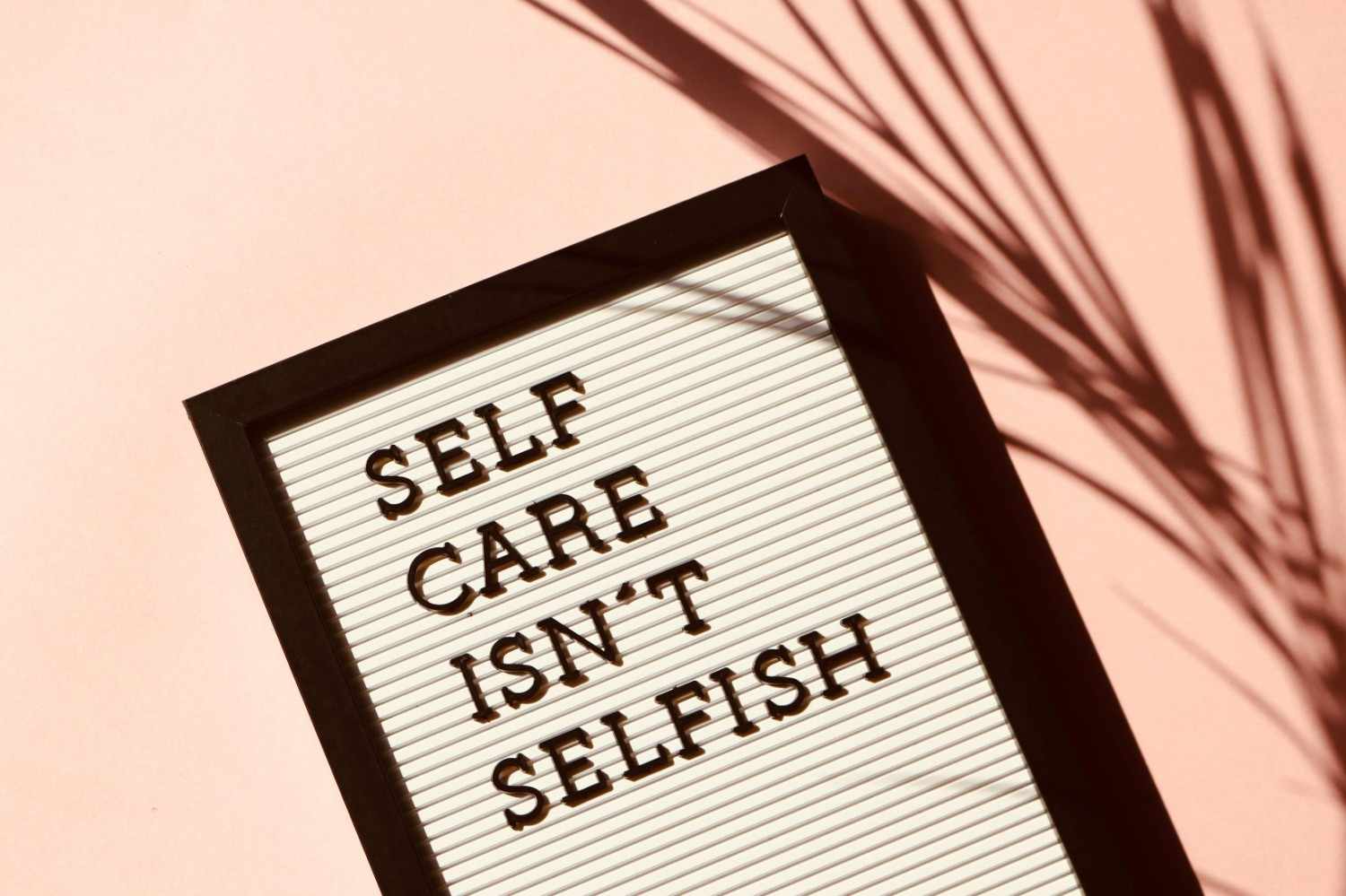Boundaries are not the walls you build to keep people out; they are the fences you build to protect the sacred garden of your own well-being. They are the practical, tangible language of self-respect. Many of us are taught that saying "no" is selfish, and that a good person is endlessly accommodating. But this belief is a direct path to resentment, burnout, and a diminished sense of self. This article is your guide to unlearning that harmful lesson and mastering the courageous, life-changing art of setting healthy boundaries.
Key Points
- Boundaries are not walls to punish or control others; they are "rules of engagement" you set to protect your own well,being and teach people how to treat you with respect (1).
- Setting a boundary is a profound act of self,love because it sends a powerful message to yourself and the world that "your needs, feelings, and limits are valid and important."
- A lack of healthy boundaries is a primary cause of burnout, resentment, and codependency in relationships, as it leads to consistently giving more than you have.
- Common barriers to setting boundaries include guilt, a fear of conflict, and the fear of abandonment, all of which can be overcome with practice and by strengthening your self,worth.
- Learning to set clear, kind, and firm boundaries is a learnable skill that is essential for moving from a place of low self,worth to one of authentic self,respect, a core theme in The Connection Between Self-Love and Healthy Relationships.
Introduction: The Language of Self-Respect
In the quiet library of self,love, where chapters are filled with affirmations and self,compassion, the practice of setting boundaries is the grammar that gives it all structure and meaning. It is the practical, tangible language of self,respect. Many of us are taught, through culture and upbringing, that a "good" person is endlessly accommodating, that saying "no" is selfish, and that our needs should always come second to the needs of others. This belief, however well,intentioned, is a direct path to resentment, burnout, and a diminished sense of self.
Boundaries are not the walls you build to keep people out; they are the fences you build to protect the sacred garden of your own well,being. They define where you end and another person begins, allowing for healthy, respectful, and authentic connection. This article, by psychologist Dr. Anya Sharma, is your guide to unlearning the harmful lesson that your needs do not matter and mastering the courageous, life,changing art of setting healthy boundaries. We will explore what they are, why they are so difficult to set, and how they are, ultimately, the most profound expression of self,love you can practice. All information is current as of September 14, 2025, at 11:42 AM GMT.
Deconstructing the Myth: What Boundaries Are (and Are Not)
Before we can practice setting boundaries, we must have a clear understanding of what they are. The concept is widely misunderstood and often carries negative connotations.
What Boundaries Are
At their core, boundaries are a "personal property line." They are the limits and rules we set for ourselves within relationships. A boundary is a clear statement of what is okay for you and what is not okay for you. It is about taking responsibility for your own feelings and needs and communicating them clearly. Examples include:
- "I am not available to discuss this topic when we are angry. We can talk about it tomorrow when we are both calm."
- "I love spending time with you, but I need at least one evening a week to myself to recharge."
- "Please do not comment on my food choices. It makes me uncomfortable."
What Boundaries Are Not
It is equally important to understand what boundaries are not.
- They are not an attempt to control someone else. You cannot set a boundary for another person's behavior. You cannot say, "You are not allowed to get angry." You "can" say, "If you raise your voice at me, I will leave the room." The boundary is about "your" action, your limit.
- They are not ultimatums. An ultimatum is a threat designed to force a specific outcome ("If you ever talk to your ex again, we are done"). A boundary is a statement of your needs designed to protect your well,being ("It is not healthy for me to be in a relationship where I feel insecure. I need us to agree on appropriate communication with ex,partners").
- They are not walls. Healthy boundaries are flexible; they can be adjusted based on the situation and the level of trust in a relationship. They are not rigid, impenetrable walls designed to isolate you. They are more like gates that you can open and close intentionally.
The Six Types of Boundaries to Know
Boundaries are not just about saying "no" to big requests. They exist across all areas of our lives. Understanding the different types can help you identify where your own boundaries may need strengthening.
1. Physical Boundaries
This refers to your personal space, your body, and your privacy. It includes who can touch you, when, and how. It also involves your need for physical distance. Examples of setting a physical boundary might be saying, "I'm not much of a hugger, but I'd love to shake your hand," or "I need some quiet time alone in my room right now."
2. Emotional Boundaries
This is the crucial distinction between your emotions and someone else's. It is about not taking responsibility for another person's feelings and not allowing their feelings to dictate your own. Someone with weak emotional boundaries might feel guilty if a friend is sad, as if it is their job to "fix" it. Setting an emotional boundary could sound like, "I can see you are really upset, and I am here to listen, but I cannot solve this problem for you."
3. Mental or Intellectual Boundaries
These boundaries protect your thoughts, beliefs, and opinions. You have a right to your own ideas, and a healthy boundary is in place when you can listen respectfully to someone else's opinion without it invalidating your own. It also involves not tolerating being dismissed or belittled for your thoughts. An example is, "We clearly see this issue differently, and that is okay. Let's agree to disagree."
4. Time Boundaries
This is one of the most commonly violated boundaries in our hyper,connected world. A time boundary is a limit on how you allocate your time and energy. It is about protecting yourself from overcommitment, being late, or giving away your time in ways that leave you feeling drained and resentful. Setting a time boundary might be saying, "I can help you with that for one hour, but then I need to get back to my own work," or simply not answering work emails after 6 PM.
5. Material Boundaries
These relate to your money and possessions. They are the rules you have about what you will share, with whom, and under what conditions. Someone with weak material boundaries might lend money they cannot afford to lose or feel uncomfortable when a friend borrows their car. A healthy material boundary could be, "I am not able to lend money, but I am happy to help you brainstorm other solutions."
6. Sexual Boundaries
These are crucial for any healthy intimate relationship and are centered on consent. Sexual boundaries include what you are comfortable with, when, where, and with whom. They are about communicating your desires, your limits, and your comfort level openly and honestly, and having those limits respected without question.
Why Setting Boundaries is So Difficult (And So Necessary)
If setting boundaries is so healthy, why does it often feel so terrifying? There are deep,seated psychological reasons why we struggle.
The Fear of Rejection or Abandonment
For many, the core fear is that if we set a limit, the other person will be angry, disappointed, or will leave us. This is especially true for those who grew up in environments where love felt conditional, dependent on being "easy" or "agreeable."
The Feeling of Guilt
We are often conditioned to be "people,pleasers," and the act of prioritizing our own needs can trigger intense feelings of guilt. The inner critic, which we discussed in Overcoming Negative Self-Talk, might scream, "You are being selfish! You are a bad friend/partner/child!"
The Fear of Conflict
Setting a boundary can sometimes lead to pushback or an argument. For those who are conflict,avoidant, the discomfort of a potential confrontation feels worse than the slow, simmering resentment of having their boundaries crossed.
A History of Violated Boundaries
If you grew up in a household where your privacy was not respected or your emotional needs were dismissed, you may not have a healthy model for what boundaries even are. You may not even realize you are "allowed" to have them.
Facing these fears is the work. The act of setting a boundary, despite the discomfort, is what slowly builds the muscle of self,worth. Every time you honor your own limit, you are casting a vote for yourself. You are teaching your nervous system that you "can" survive the discomfort, and in doing so, you are building the resilience that is at the heart of self,love.
How Boundaries Are the Ultimate Act of Self-Love
The practice of setting boundaries is not just about avoiding things you do not want to do; it is about actively creating a life that feels authentic and aligned with your values. It is a direct pathway to self,worth.
Boundaries Validate Your Needs
The very act of identifying and communicating a boundary is a declaration that "your needs matter." It is a powerful antidote to a lifetime of feeling like your needs are secondary. It is a way of showing up for yourself.
Boundaries Conserve Your Most Precious Resources
Your time, energy, and emotional capacity are finite. When you have weak boundaries, these resources are constantly being drained by others. Healthy boundaries are the "energy management system" that prevents burnout. This is a core component of any effective Self-Care Routine.
Boundaries Foster Authentic Relationships
This is a paradoxical truth: setting boundaries often "improves" relationships. It weeds out the people who are only in your life for what they can get from you and deepens the connection with those who genuinely respect you. It allows for intimacy built on honesty, not on performance.
Boundaries Build Self-Respect
Self,respect is not something you can get from others; it is forged in the fire of your own choices. Every time you honor a boundary, you are keeping a promise to yourself. This builds a deep, internal sense of trust and integrity. You learn that you are someone you can count on.
Comparison: A Life with Weak vs. Healthy Boundaries
| Area of Life | With Weak Boundaries | With Healthy Boundaries |
|---|---|---|
| Emotional State | Often feel resentful, taken for granted, and anxious. Your mood is highly dependent on others. | Generally feel more peaceful, respected, and in control of your own emotional state. |
| Energy Levels | Frequently feel drained, overcommitted, and burnt out. | Energy is protected and intentionally allocated. You have more capacity for the things that truly matter. |
| Relationships | May attract demanding or codependent people. Relationships feel like a lot of work and obligation. | Attract respectful, reciprocal relationships. Connections feel authentic and supportive. |
| Sense of Self | Identity can feel blurry or enmeshed with others. You may not be sure what you truly want or need. | A strong, clear sense of self. You are in touch with your own values, needs, and desires. |
| Decision Making | Decisions are often made based on what will please others or avoid conflict. | Decisions are made based on your own values and what is best for your well,being. |
Conclusion: Your Permission Slip
Consider this article your official permission slip to have boundaries. You are allowed to say "no." You are allowed to change your mind. You are allowed to prioritize your own well,being. You are allowed to take up space in the world and to have needs.
The journey of setting boundaries is the journey of learning to honor yourself. It can be uncomfortable at first, like using a new muscle. But with practice, it will become a natural and integrated part of who you are. It is the commitment you make to stop abandoning yourself, and in doing so, it becomes the most powerful and transformative act of self,love there is.








